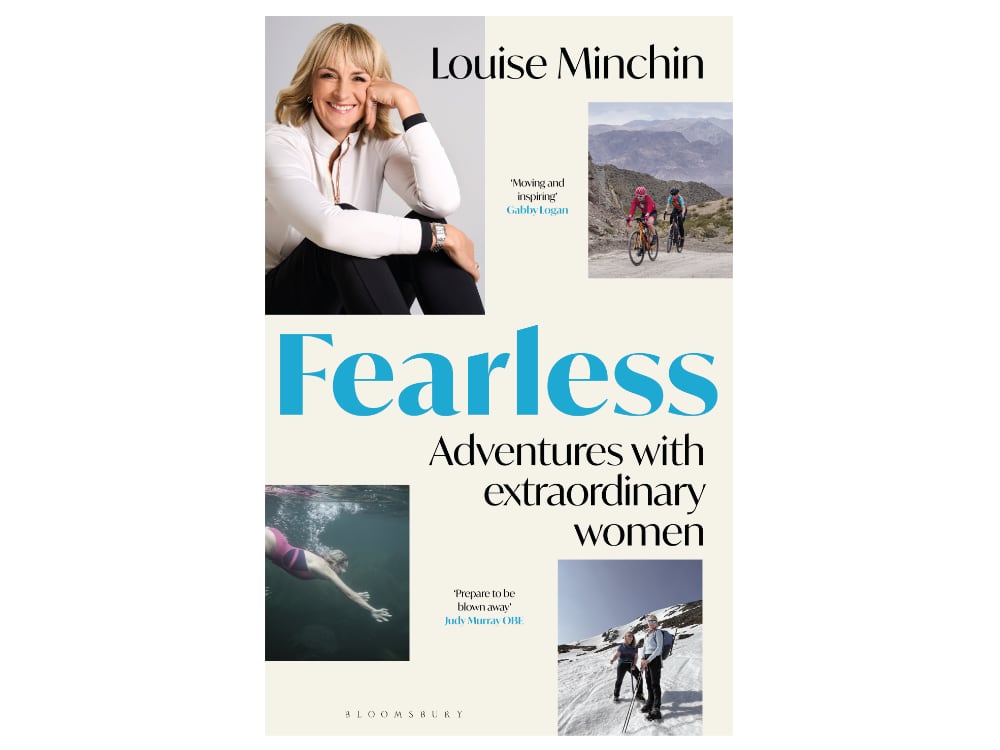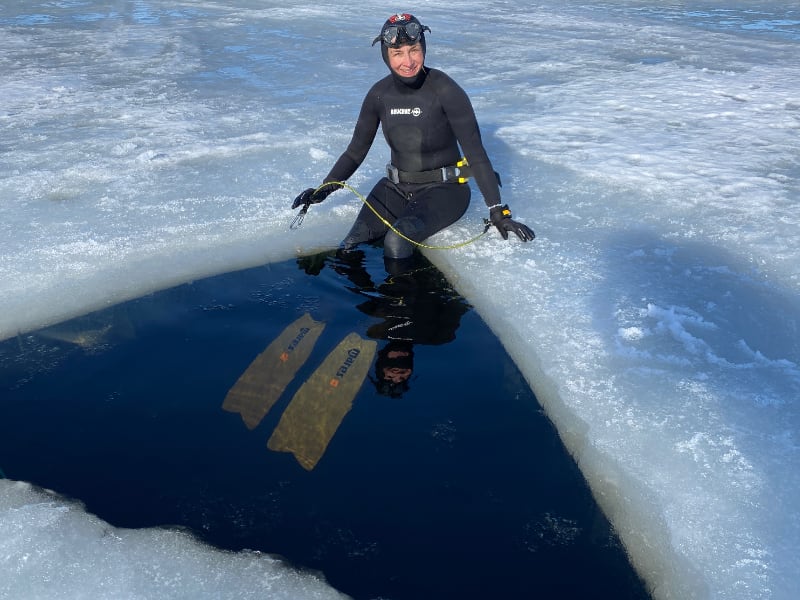It is 5.16 in the morning. I am balancing a bowl of congealed porridge in my left hand, juggling a pile of scripts in my right. I have to be dexterous, taking care not to drop the 40 pages because that will waste precious time. And time is not on my side.
The sheaf of paper is a printout of my briefing notes, packed with information which I need to speed-read for a dozen different interviews by 6 a.m. I am aware in the back of my mind that around six million people will be watching me presenting BBC Breakfast. As always, I need to get this right. The pressure is on.
The selection of guests and stories is pretty average for the show, something I am familiar with after nearly 20 years of waking up and going to work at 3.40 a.m. An interview with a government minister, an item on wind farms, 10 minutes with an ’80s popstar making a comeback – and at the end, a classic, a programme perennial, an uplifting interview about a fearless endeavour.
Those stories are always my favourite part of the show.
This morning, it’s about a brave man attempting to climb a mountain in his bare feet.
And that’s when it hit me!
I surprise myself, saying out loud: ‘Not again! What the actual hell?’ (I’ve toned the swearing down; this is a book!)
Liz, who has expertly and with infinite patience been trying to do my make-up while my eyes flick across the words, asks: ‘Are you OK?’
‘No, I’m not, I’ve had enough! I cannot interview yet another man about his adventures! What about all the women doing incredible things? The fearless females? Why don’t we talk to them? Why aren’t they on the sofa being interviewed? Why don’t we hear their stories?’
That was the moment for me, the moment I decided to write this book. I was fed up of being complicit with the narrative that it is only men who deserve to be celebrated, only men who are brave, only men who stretch the limits of what is humanly possible. I was done with telling only one side.
Why? Because being talked about and being seen matters. If you don’t hear it and you don’t see it, how can you be it? We need equal representation. I had to write this as a journalist, as an endurance athlete and as a mother to two daughters because, with respect to all the men I have interviewed, women and girls need heroes too. Heroes who look like them. And by the way, I’d argue that men like to hear the stories of heroic women too!
I had already fought and won some important battles for equality during my TV career, including a bruising and long- winded fight to get paid the same as my male co-presenters sitting next to me.
The other battle was to make sure that women presenting BBC Breakfast were allowed occasionally to lead the programme. I had noticed that almost every day my male colleague was given the prestigious task of saying hello at the top of each hour, introducing the programme, doing the first interview.
Once I had noticed how often it happened, I couldn’t unsee it. Why was it happening? Why was I always the second person to speak, even though I was older and more experienced?
What message did it send to all our female viewers? That I wasn’t as important as my male counterpart? That I was second fiddle? That I didn’t deserve to be there? What implication did that have for their own lives, and their own careers? I thought it was unfair, unequal and also immensely damaging.
So, I set out to try and change things, gently at first. I asked our (mostly male) directors if maybe, every now and then, I could start the programme? Ask the first question? Take charge of the most important story of the day? Some let me, others didn’t. When they didn’t, I asked why.
The most coherent answer they had was this: ‘Because this is the way we have always done it.’
There it was: age-old, systemic discrimination built into the fabric of the programme.
For the next three months I took notes of dates and times, who did which interview and when. My hunch was right: it was almost always the man who took the lead. Armed with the facts I arranged a meeting with my boss at the time, which went like this.
‘I have noticed that my co-presenter almost always seems to do the first interview of the day. Could we change it so I can do it occasionally?’
‘That’s not the case. They don’t.’
I knew him well.
‘I thought you might say that, so I’ve made notes. We can do one of two things. I can show these to you, and you can change it. Or you believe me and just change it?’
He never asked for my notes, and from that day on it was set in stone: every other day, the woman on the sofa was allowed to lead the programme, to be in charge.
I believe passionately that what you see in front of you matters: it shapes your view of the world and your value in it. That is why I was so incensed that the same thing that had happened to me was happening with one of my favourite parts of the programme. Almost every story about a bold or brave adventure starred a man.
That moment in Make-up, when my eyes were opened to the repeated pattern, galvanised me. I decided right then to go on a mission to find the women who were fearless, the women who were intrepid and courageous; those women whose stories had seldom been told; whose achievements had barely been recognised; and who had never had the opportunity to grace the famous red sofa and inspire us by sharing their experiences.
I would find them, talk to them, celebrate their stories.
As soon as I started, I was inundated with examples of courageous women from hugely diverse backgrounds. Undaunted women taking on awe-inspiring challenges: climbing the highest mountains, running superhuman distances, swimming in shark- infested waters just for fun and setting Guinness World Records while they did it. And doing this without praise, without accolade, without headlines or front pages, just because they were badass enough and fearless enough.
To get to the heart of who they are, and what motivates them, to be able to tell their stories better, I decided to do it the way that I know best, by taking part, spending time right beside them to experience the things they love.
Each chapter is dedicated to a different courageous woman and a different extraordinary adventure.
I have feared for my life while cycling across Argentina. I have gone freediving under ice in the pitch dark in Finland. I have found myself covered in mud playing rugby in the rain in southwest London. I have re-enacted the dangerous escape from Alcatraz and swum to San Francisco.
The women in this book have taken me far out of my comfort zone. It has been a roller coaster, both physically and emotionally. It has been exhilarating, inspiring and, sometimes, terrifying. I have learned so much, I have forged firm friendships and, best of all, I have been able to witness first-hand the indomitable power and tenacity of the female spirit.
This book is filled to the brim with inspiring stories of their endeavour, endurance, and bravery. But these fearless women are not alone. There are many others who deserve to be celebrated; many more than I can’t fit into the pages of this book; many more that I would have liked to meet.
There are 18 women here. Follow their lead. Be inspired. This is just the beginning.
18 extraordinary women, 17 incredible adventures…
Fearless by Louise Minchin is available now in paperback.


